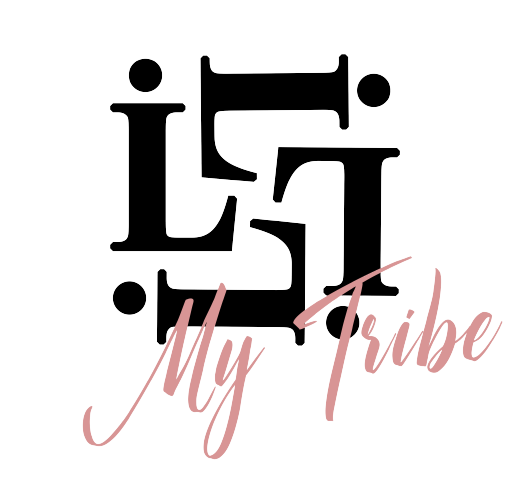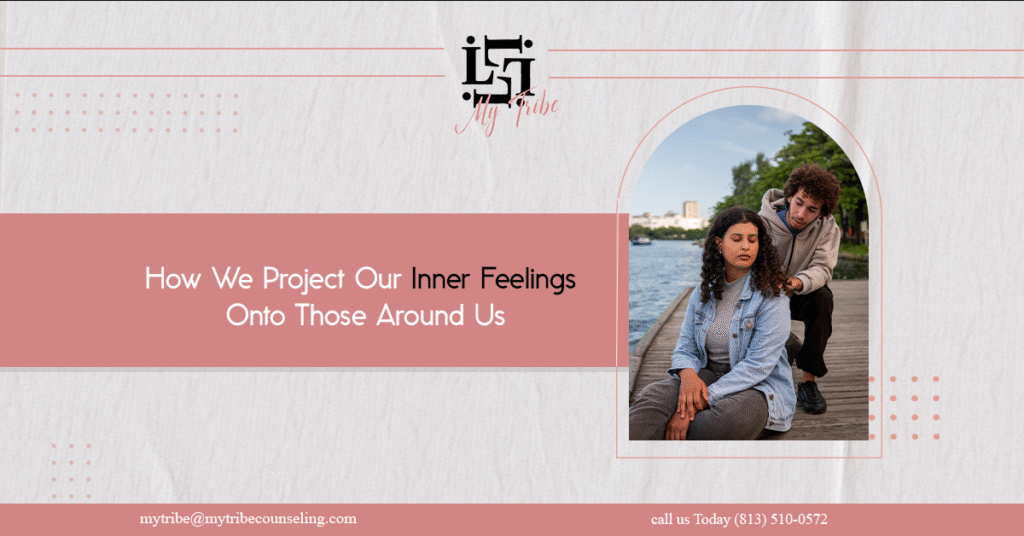Chances are you’ve snapped at someone over nothing, only to realize later you were really stressed about something entirely different.
Or you were entirely convinced that a friend was mad at you, only to learn that it was you walking around holding onto unaddressed issues.
We all experience such moments, and there is a psychological explanation for them.
This is known as projection, and though the term may sound elaborate, it’s merely a way of processing feelings and connections within one’s mind.
What Is Projection?
Projection is what it sounds like. We take what’s inside us and put it on other people.
It’s not something we do on purpose; our brains just make patterns out of things, especially when it’s about complicated feelings.
Imagine coming back from work from a taxing day at work where your boss criticized you.
Suddenly, that simple question from your partner about dinner seems to be loaded with judgment.
They aren’t critical, but your raw feelings from work affect how you take what they say.
Hence, this mental process has a function of helping us cognitively make sense of complex emotional situations.
However, it can also lead to misinterpretation and harm when we conflate our internal experience with external reality.
How This Shows Up Day to Day
Projection can look like a lot of different things. Sometimes it’s obvious, sometimes it’s sneaky:
- Getting annoyed by things that normally don’t bother you. Like when you’re already irritated and suddenly everyone’s breathing is too loud
- Assuming people are thinking things they’re not. You walk into a room and know everyone’s judging your outfit when they’re probably thinking about something else entirely
- Feeling attacked when someone’s just being normal. Your colleague asks a regular question, and you hear criticism that isn’t there
- Seeing your own struggles everywhere. When you’re lonely, everyone seems happier than you; when you’re anxious, everyone seems more put-together
Yet, sometimes, it is true that projection does include some pieces of reality, making it even harder to trace.
How Projection Affects Our Relationships
Here’s where things get complicated. When we keep putting our feelings on other people, it starts affecting how we connect with them:
- People feel misunderstood. They’re getting blamed for emotions that aren’t even theirs
- We create the problems we’re worried about. Act distant because you think someone doesn’t like you, and they might start pulling away
- Conversations get weird. You’re responding to things they never actually said or meant
- Everyone gets exhausted. It’s draining to defend yourself against accusations that don’t make sense constantly
Someone’s convinced their partner is always criticizing them, so they get defensive about everything.
The partner starts walking on eggshells, which makes them seem distant, which proves the original person was right about being criticized. It’s like a loop that feeds itself.
Catching Yourself in the Act
Once you start noticing when you’re doing this, you can actually change it. It takes practice, but it’s totally doable.
Here’s what to watch for:
- Your reaction feels too big. If someone saying “good morning” differently ruins your whole day, something else is probably going on
- You’re making up stories. Notice when you’re adding meaning to neutral things, like deciding someone’s tone means they hate you
- The same thing keeps happening. If you feel judged by everyone you meet, the common factor might be you
- You can’t shake a feeling. When you’re stuck on what someone meant even after they’ve explained
The moment you think, “wait, am I projecting right now?” is actually a breakthrough.
What to Do When You Notice It
Don’t beat yourself up when you catch yourself projecting. That creates more emotions to project later.
Instead, try this:
- Take a breath. Projection often happens when we’re already wound up, so settling your nervous system helps
- Get curious about what you’re actually feeling. Are you tired? Scared? Disappointed? Name it without judgment
- Separate what happened from what you added. What did they actually do or say versus what story you created about it?
- Ask instead of assuming. “Hey, when you said that, did you mean…” instead of deciding what they meant
Sometimes just acknowledging “I think I might be projecting here” can completely shift a conversation.
Role of Counseling in Addressing Projection
Here’s how counselling helps:
- Develop emotional awareness. Identify and process the feelings yourself before projecting them onto others
- Practice new communication skills. Develop better ways of voicing your needs and concerns
- Practice new ways of handling emotions. Learn what to do with feelings instead of accidentally putting them on others
- Work through old stuff that’s still affecting you. Sometimes, projection is really about unhealed issues from way back
- Get an outside perspective. It’s hard to see your patterns when you’re in the middle of them
At My Tribe Counseling, we help people untangle these kinds of emotional knots every day.
Our approach is about helping you become who you want to be in your relationships.
Related: Becoming Your Best Self Through Individual Counseling
Developing Healthy Emotional Routines
- Start checking in with yourself more. “How am I feeling right now?” before you react to someone else
- Practice saying what you actually need. Instead of hoping people will guess or getting mad when they don’t
- Notice your triggers. What situations or people tend to bring out projection for you?
- Be honest about your stuff. “I’m having a rough day,” instead of making it about everyone else
Your Relationships Are Worth It
When you’re not constantly defending against threats that aren’t there or putting your emotions on others, you get to show up as yourself.
People get to know the real you instead of the version of you that’s always reacting to your own projections.
At My Tribe Counseling, we can help you build the authentic relationships you’re looking for.
Reach out today, and let’s figure out what’s possible for your relationships when you’re not carrying around emotions that don’t belong to them.
FAQ
How to express your inner feelings?
Observe and give your feelings a name without being judgmental.
Be able to express them through writing, verbal communication with a trusted person, or modes of creativity that just come naturally to you.
What’s an example of projecting emotion onto someone?
You feel bad about yourself and think that your friend is judging your choices, even though they have not said anything negative or bad at all. It’s your self-judgment you’re just putting onto them.
What does it really mean when someone is projecting their feelings onto you?
They see your feelings as their own or read your actions through their emotional lenses.
They don’t perceive your true intentions or experiences.
What is it called when you project your emotions onto someone else?
This is psychological projection. A defense mechanism in which we unconsciously attribute our thoughts, feelings, or motivations to other people.

